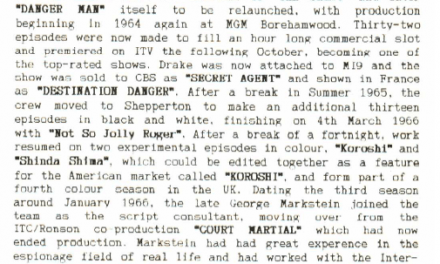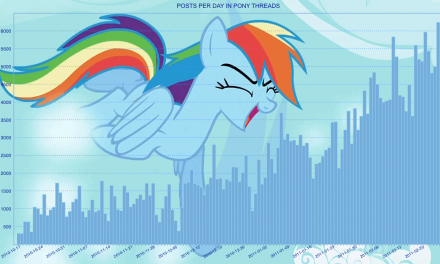The doctoral thesis is the most problematic aspect of academic endeavour, particularly in the humanities and social sciences. Unlike the sciences, where a doctoral student is typically part of a team attached to a research project, in our area it is typically a lone pursuit… and a very lonely one at times. The tradition is that candidates offer their own topic, rather than apply for already defined projects, a haphazard process which leaves promising areas unresearched.
The PhD is commonly regarded as an apprenticeship for academic life. Nowadays it is a default demand for an academic job, something that is an obstacle to recruiting people coming from successful careers in the media. Yet PhD research hardly beings to cover the roles that most academics play for the majority of their careers. A PhD is no apprenticeship for designing and delivering a course; for developing innovative teaching methods; for ‘giving feedback’; for playing an important administrative role like ‘Admissions’ or ‘Career Development’; for acting as a personal advisor to students and the rest of it. Indeed, you could say that three or four years forced concentration on a single project would significantly erode these skills in many people.
With current pressures from minister Jo Johnson towards a TEF (Teaching Evaluation Framework), it’s likely that a few of these skills will become part of the requirements of a successful doctoral student in the future. At the moment, however, only the lucky (or unfunded) candidate is handed teaching work by the department responsible for their supervision. And there is the feeling that this can distract from the essential work of finishing the PhD “on time”. Especially now, because administrations around the country, made anxious by the number of uncompleted PhDs, are squeezing the permitted time before submission. Clearly, something will have to give before long.
So what does the PhD train someone for? Perhaps it prepares a would-be academic for the writing of a monograph, for academic publishing and the REF. Even here, there are two issues. One is simply the possibility that REF2014 will turn out to be the last such exercise. There has to be some silver lining to the massive cuts and rolling back of the public sector just about everywhere you look, and this might be it. BIS, Sajid Javid’s department in which Universities and Science sit (Jo Johnson being the junior minister in the department with direct responsibility), has agreed to cut 40% of its expenditure as part of the Treasury’s plan to roll back the state (if not abolish it completely). There is not much that can be cut in “our” area, given that science research spending is a protected category and student loans are now off the books.
So what to cut? Student grants? Quite possibly they can be converted into loans… and then what? The most obvious candidates are the research councils and HEFCE itself. One unified research council is a possibility. And as for HEFCE: its central role of allocating state monies to English universities no longer exists. REF2020 remains a key role, but then the whispers are that it is a very expensive business. It is too expensive for the amount of real difference it can make to the allocation of research spending, as the free market Institute for Economic Affairs has argued. So, get rid of HEFCE, get rid of REF2020, and the savings are made. I really doubt that the Scots and Welsh councils would want to continue the exercise if England doesn’t. So more savings there too. So there may be twin pressures towards developing teaching skills as well as research skills in the potential academics going through the PhD rite of passage. This is the kind of gossip that a responsible blogger has to offer their reader these days. It’s good clickbait but will not necessarily happen. Even so, there will pressure towards developing teaching skills as well as research skills in the potential academics going through the PhD rite of passage.
My other issue with the current PhD regime concerns its status as a ‘rite of passage’ into academia. There are major differences in expectation between different institutions and between the differing tendencies within research on media and communications. What exactly is this rite of passage meant to prove? I have read a number of PhDs (and indeed books based on PhDs) which feature extended literature reviews. I have attended vivas where the candidate’s lack of an extended literature review has been a major issue for some examiners. So there is a tendency among our colleagues to regard proof that a candidate has read, digested and critiqued the leading works in the field as an absolute necessity. This is a more sociological model of a PhD, perhaps. When done well, it leads to fresh conceptualisation, but that is a lot to expect from a young scholar. More often, it leads to some enormously stodgy outputs, where a ritualistic citation of works from the canon just runs on and on.
Obeisance to the great god of theory is possibly a sign of a discipline that remains unsure of itself. Certainly, I was surprised, having done other things for a few years, to discover that my book Visible Fictions had proposed something called ‘glance theory’. When writing the book, it was offered more as an empirical observation. Perhaps our discipline sets too much store by the idea of ‘theory’ and elevates simple speculation to that status. Yet at the same time, I am also worried by those theses which seem to rely for their definition of concepts on surveys (often doctoral literature reviews edited for publication) of relatively recent date which report on older research and older writing.
Such theses, light on the lit. review, often offer detailed empirical evidence and deductions from that evidence. They certainly are a new contribution to knowledge (the other requirement of a PhD), and they conform to a very different model of a PhD. This could be called the historian’s model, where a doctoral thesis is usually expected to dwell on the detailed study of a very specific instance or event. Broad sweeps or overviews are anathema at the PhD level within history. They are seen as the prerogative of a later stage in a historian’s career. And the category of the ‘broad sweep’ includes the generalising theory.
As an area that crosses disciplines, media and television studies seem to operate according to both models. Some candidates will cheerfully cite Foucault and even argue with some of his premises. Others confine themselves to methodological observations. So do we need consistency? Well, when the requirement for a lit review means that a candidate required to undertake major rewrites, we most certainly do. Of course, the careful choice of external examiner can avoid such problems, but such tactics do nothing to help the development of the discipline.
In short, we seem to have an approach to doctoral research that is not ‘fit for purpose’, or rather, is not sure what its purpose is. Many of the issues are common right across humanities and social sciences: solitary study of a self-selected area; lack of preparation for the teaching career for which it is seen as a necessary prerequisite. But this question of the basic models of a satisfactory thesis seems to be unique to our area.
JOHN ELLIS is Professor of Media Arts at Royal Holloway University of London. He leads the ADAPT project on the history of technologies in TV, funded by a €1.6 million grant from the European Research Council. He is the author of Documentary: Witness and Self-revelation (Routledge 2011), TV FAQ (IB Tauris 2007), Seeing Things (IB Tauris 2000) and Visible Fictions (1984). Between 1982 and 1999 he was an independent producer of TV documentaries through Large Door Productions, working for Channel 4 and BBC. He is chair of the British Universities Film & Video Council and also oversees the Royal Holloway team working on EUscreen. His publications can be found HERE.





